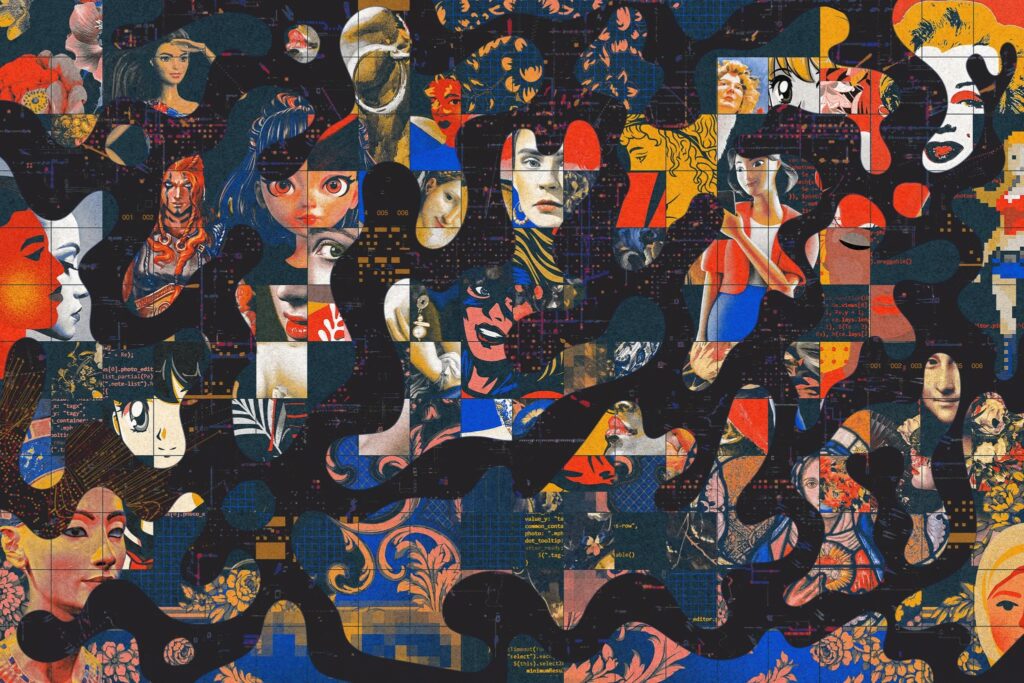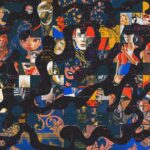Powerful generative AI tools became ubiquitous seemingly overnight, leaving us all in a flurry of excitement and anxiety. The race to develop the best AI chatbot is the wild west, which poses unanswered questions around tech company ethics. The public release of generative AI tools is truly an experiment: finding new uses and abuses to the technology a day at a time, rendering it a solution in search of a problem to solve.
So far, it seems to be serving as an efficiency solution: helping us breeze through crafting an email or social media posts and quickly generate images. Is efficiency the biggest thing that we need AI to solve right now, though? Efficiency for the sake of what and at what cost? Whether the astronomical advancement of this technology excites you or gives you anxiety, we all have one thing in common: we don’t know what our AI future looks like and we have the opportunity now to imagine what it could be and what we want it to look like.

Elon Musk and Others Call for Pause on AI, Citing ‘Profound Risks to Society’
The push to develop more powerful AI chatbots has led to a race that could determine the next leader in tech. But the existing systems can often get things wrong and be used for harm, such as spreading misinformation. That’s why more than 1,000 tech leaders, researchers and others signed an open letter urging a moratorium on the development of the most powerful artificial intelligence systems, to give tech and political leaders the chance to implement guidelines and safety restrictions and prevent the technology from doing more harm than good.

Biden Administration Weighs Possible Rules for AI Tools Like ChatGPT
The Biden administration recently responded to the growing concerns that AI technology could be used to discriminate or spread harmful information if left unchecked. In a first step toward potential regulation, the Commerce Department put out a formal public request for comment on whether new AI models should go through a certification process prior to their release. What regulation looks like is still very much up for debate—some political leaders are skeptical of the government’s ability to properly regulate this new technology, citing the lack of action against powerful social media companies when it comes to protecting users’ privacy.

The scary truth about AI copyright is nobody knows what will happen next
In the past year generative AI models have gotten more sophisticated and more accessible than ever, leveraging the work of artists all over the world to create art, music, videos and even code…begging the question: is this legal? Experts on both sides weigh in, but the reality is that no one truly knows. Diving into the legality of AI generated content begets more questions. Can you copyright an AI generated image? Who owns it? The Verge reporter, James Vincent, attempts to answer some of these questions in this article.

How Will Developments in AI Impact UXR? Researchers Weigh In
Just like any other field, practitioners of UX research have begun leveraging AI tools to support their work. How they’ve begun using them and their opinions on whether to leverage them at all (or at what capacity) is a mixed bag. Kathleen Azjes, of dscout, argues that relying too heavily on AI tools for efficiency comes with a price when conducting user research. Not only are there still concerns of an inherent bias, but AI adds another layer of separation between the researcher and the humans they are trying to empathize with.

Imagining Narratives for Preferable AI Futures
The inclusion of this article is more of a prompt to say, “we should do more of this!” The Rotterdam chapter of Speculative Futures conducted a workshop with the aim of imagining “how AI technologies could positively contribute to the pursuit and realization of Sustainable Development Goals.” Rather than focusing on what could go wrong with AI technology, they flipped it on its head to imagine what hope it could bring; rather than generating a multitude of utopias, they leveraged the Sustainable Development Goals to ground the group in reality, generating concepts that are preferable and probable.

